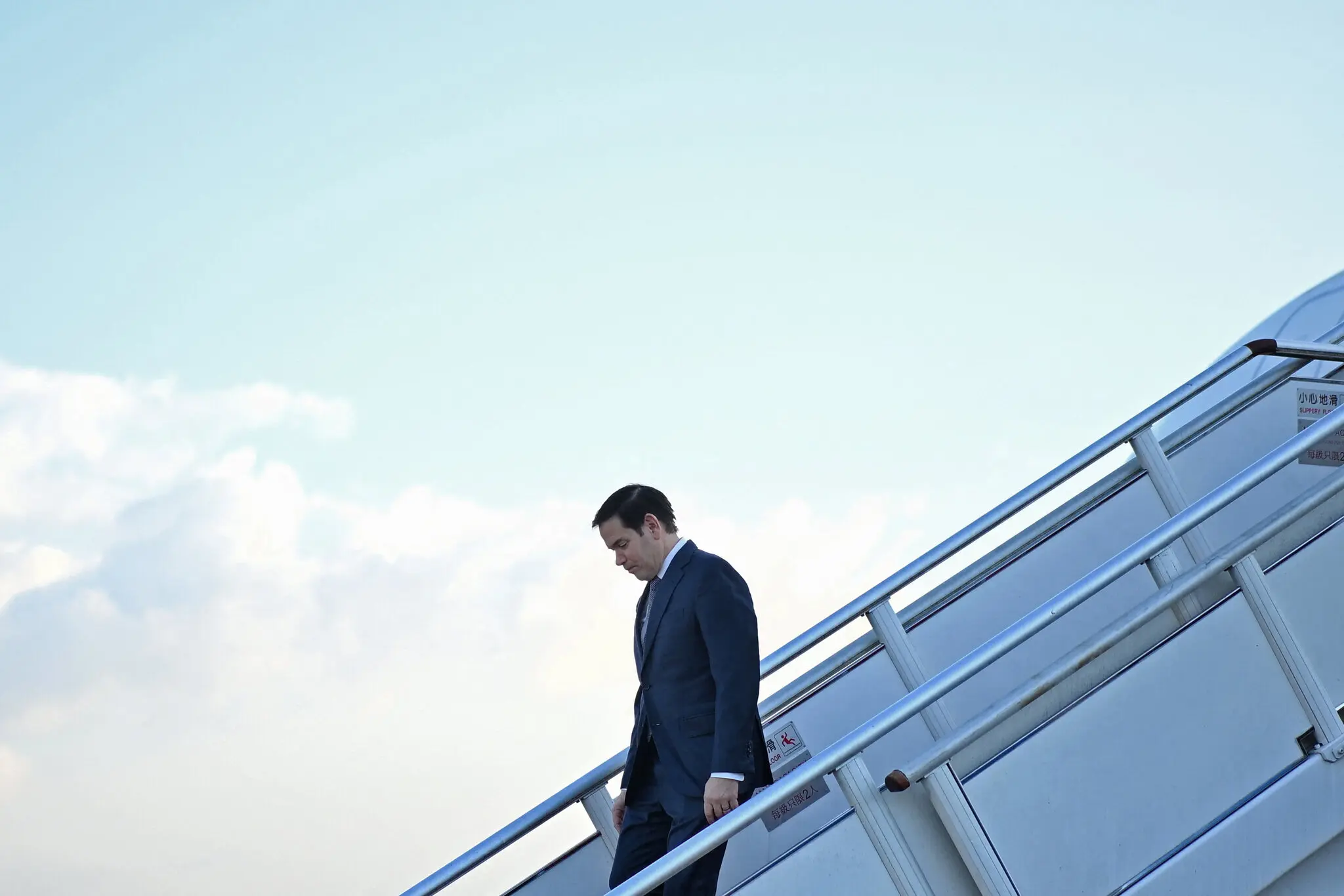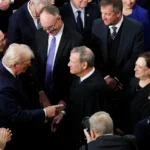As President Donald Trump ramps up his criticism of Vladimir Putin for escalating the war in Ukraine, U.S. Secretary of State Marco Rubio on Thursday conveyed “disappointment and frustration” to Russian Foreign Minister Sergey Lavrov over the lack of progress in peace negotiations. The two met on the sidelines of a regional summit in Malaysia, where they reportedly discussed not only Ukraine but also Syria, Iran, and a potential resumption of direct flights between the U.S. and Russia.
“The president has been very clear: he’s disappointed and frustrated that the Russian side has shown so little flexibility in bringing this conflict to an end,” Rubio told reporters traveling with him. According to The New York Times, the Trump administration is still seeking a diplomatic settlement to the war, but Moscow remains unyielding.
Although Rubio confirmed that the U.S. has temporarily paused the delivery of certain weapons to Ukraine on the orders of Defense Secretary Pete Hegseth, he clarified that the suspension mainly affects “defensive systems” and described it as a “limited review” of aid shipments. At the same time, he said the administration is working with Congress to draft new sanctions against Russia in response to “large-scale strikes on civilian targets.”
Talks in Malaysia: Not Just About the War, but Trade
Rubio’s visit to Asia — his first as secretary of state — comes amid growing U.S. pressure on trading partners. President Trump has threatened 14 countries with higher tariffs if no new trade agreements are reached by August 1. Malaysia, which is hosting the ASEAN summit, is among them.
The proposed 25% tariff on Malaysian exports to the U.S. came as a surprise to Kuala Lumpur. As The New York Times reports, Trump made a similar announcement in April, only to suspend it for 90 days. Since then, the U.S. and Malaysia have held 25 rounds of talks.
“We’re engaged in these negotiations to reset U.S. trade relationships on terms that are more beneficial to us,” Rubio said at a press conference. He added that the U.S. has “no intention of abandoning partnerships in the region — on the contrary, we aim to strengthen and build upon them.”
However, Trump’s approach is causing alarm among ASEAN leaders. On July 1, Malaysian Prime Minister Anwar Ibrahim urged Southeast Asian nations to coordinate their foreign and economic policies more closely in response to Trump’s threats:
“Tariffs, export restrictions, and investment barriers have now become sharpened instruments of geopolitical rivalry. This is no passing storm. It is the new weather of our time.”
Malaysia’s Foreign Minister Mohamad Hasan told Rubio on Thursday that his government is stepping up enforcement against illegal ship-to-ship oil transfers in its waters. The move, expected to take effect by the end of July, follows a visit last year by U.S. Treasury Under Secretary Brian Nelson, who warned that the region’s waters were being used as transit points for Iranian oil circumventing U.S. sanctions.
China Steps In to Seize the Moment
According to The New York Times, China’s top foreign policy official Wang Yi is also attending the summit in Kuala Lumpur and will likely promote Beijing as a more “reliable” trade partner compared to Washington. President Trump has vacillated between praising President Xi Jinping and criticizing China for “unfair trade practices.”
Former U.S. trade negotiator Stephen Olson warns: “The U.S. is using these negotiations to pressure countries to scale back their trade and investment ties with China. But that will inevitably spill over into U.S.-China talks and complicate third-country relations with China.” Olson also notes that excessive pressure from Washington could backfire, as many of these countries trade more with China than with the U.S.
“There’s an open question: if Trump keeps moving the goalposts and blowing through deadlines, will countries start to question the point of negotiating at all?” Olson said.
Questions About U.S. Priorities in Asia
Despite repeated claims that the Indo-Pacific is a strategic priority, the U.S. has spent decades focusing on the Middle East. Some analysts argue that Rubio’s delayed and short visit to Asia only reinforces doubts about Washington’s true commitment.
“A brief trip by Rubio once again raises concerns that the Indo-Pacific isn’t really the priority theater,” wrote Derek Grossman, an Asia security analyst and former U.S. intelligence official, on July 3.
According to the State Department, Rubio’s visit is meant to bolster U.S. alliances across Asia and push back against China’s regional assertiveness by promoting a “free, open, and secure Indo-Pacific.”
Yet Trump’s tariff threats aimed at treaty allies like Japan and South Korea have further shaken confidence. There are also concerns about a potential rollback of key security initiatives. The Pentagon is currently reviewing AUKUS — the Biden-era defense pact with the UK and Australia for transferring nuclear submarine technology. Some defense officials remain skeptical about sharing advanced U.S. systems even with close allies.
At the beginning of the week, Rubio chose to remain in Washington to attend meetings with Israeli Prime Minister Benjamin Netanyahu rather than extending his Asian tour. According to The New York Times, this decision further signaled that the Indo-Pacific may once again take a back seat in Trump’s foreign policy.
This article was prepared based on materials published by The New York Times. The author does not claim authorship of the original text but presents their interpretation of the content for informational purposes.
The original article can be found at the following link: The New York Times.
All rights to the original text belong to The New York Times.


















